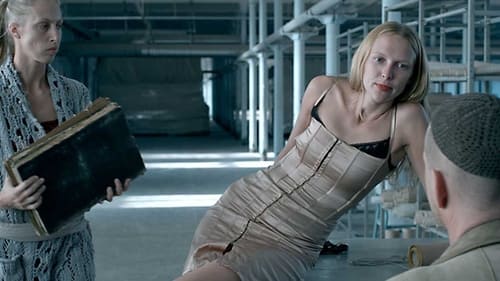
Music
The story of the secret of self-creativity, the loneliness of the soul, the meridians of con-sciousness and the scope of man. Ilmārs Blumbergs (1943-2016) is a concept in life than can be classically proven if we analyze his work in set design, poster art, painting and multimedia work. The personality of Blumbergs, however is a shifting and intangible material which ensures superior value, wonderfulness and intimacy to all that he created. Those who analyze his art and world perceptions, recognize the work as seeming to come from antiquity, but it can never be catalogued or recorded in bookkeeping. How fortunate that it also cannot be consumed.

Music
Film about a man who was sent to fight in Afghanistan years ago, where he converted to Islam. He now returns home only to find himself facing another kind of war.The front line in the decrepit Estonian town runs between Eastern and Western culture, men and women, common sense and madness. Somewhere amidst these battles is his daughter, who Kirotaja has decided to find after all the years of absence. His only leads are the sound of his daughter crying, heard once on the telephone, and a dog-eared notebook full of letters addressed to her. But the town has other plans for him and the women running it seem to take him for their savior from the nagging feeling of emptiness that has enveloped them. (from imdb)

Original Music Composer
A young boy lives with his mother on a farm surrounded by deep forest in the remote wilds of the Finnish countryside. From time to time, the boy visits his father - a man of great violence - in prison. Locked in the stable is an unruly horse, the boy´s only other companion. Their simple life is disrupted when a stranger appears, with a note from the father and a bullet in his side. Reluctantly, mother and son offer the stranger refuge.

Music
Autumn 1944, Estonia. Tens of thousands of people leave their homeland in fear of approaching frontline. Some seashore villages remain completely empty. A young woman with huge grey eyes gets off the boat. Eetla leaves the last boat, thus giving up her last chance to escape. Defying the cold wind and rain of September, she returns to the lighthouse which is unexpected to her father Gottfrid, the lighthouse keeper, and herself. Eetla's return becomes her self-encounter and self-recognition.



